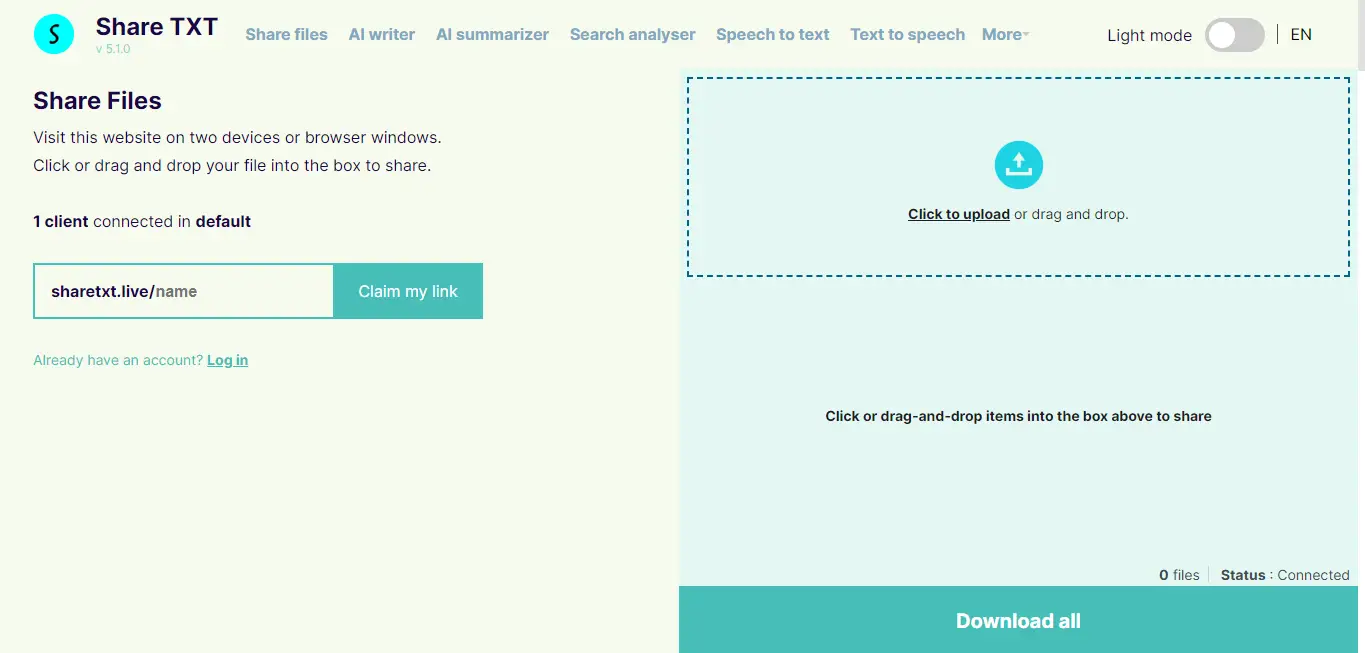Email attachments can be a convenient way to share files with others, but they also come with a number of challenges. Unlike sharing passwords and text, attachments can be large, which can make emails slow to send and receive, and they can also be prone to errors and security risks. If you're looking for a better way to share files, there are a number of alternatives to email attachments that can provide more reliable and secure file-sharing options.
In this post, I'll explore some of the best file-sharing alternatives to email attachments. From cloud storage and file-sharing services to file transfer protocols and collaboration and project management tools, we'll cover a range of options that can help you share files more efficiently and securely. Whether you're working on a team, sharing files with clients, or simply looking for a better way to share files with friends and family, these file-sharing alternatives can provide the solutions you need.
Cloud storage and file-sharing services
Cloud storage and file-sharing services provide a convenient and easy way to store and share files online. These services offer users a certain amount of storage space on remote servers, which can be accessed from any device with an internet connection. Some popular examples of cloud storage and file-sharing services include Google Drive, Dropbox, and OneDrive.
One of the main benefits of using cloud storage and file-sharing services is that they allow users to access their files from any device, at any time. This can be especially useful for teams or individuals who need to share files and collaborate on projects remotely. Cloud storage and file-sharing services also make it easy to share files with others, as users can simply send a link to the file or folder, rather than sending large attachments via email.
However, there are also some potential drawbacks to using cloud storage and file-sharing services. One concern is security, as users are trusting their files to a third-party service. It's important to choose a reputable and secure cloud storage and file-sharing service and to take additional steps to protect your files (e.g. using strong passwords, and enabling two-factor authentication). Additionally, users may need to pay for additional storage space if they exceed the allotted amount, and some services may have limitations on file types or sizes that can be uploaded.
File Sharing services such as ShareTXT eliminate the worry about security by offering an innovative solution that enables you to share your files end-to-end between your devices without them being stored somewhere in some database. This eliminates the need for an intermediate server.
Overall, cloud storage and file-sharing services can be a convenient and efficient way to store and share files, but it's important to carefully consider the security and cost implications before committing to a particular service.
File transfer protocols
File transfer protocols (FTPs) are a set of rules that govern the exchange of files over a network. There are a variety of file transfer protocols, including FTP (File Transfer Protocol), SFTP (SSH File Transfer Protocol), and HTTPS (Hypertext Transfer Protocol Secure). These protocols enable users to transfer files between computers, servers, and other devices over the internet.
One of the main benefits of using file transfer protocols is that they allow you to transfer large files quickly and efficiently. FTPs also offer a high level of security, as they use encryption to protect the data being transferred. This can be especially important for transferring sensitive or confidential files.
However, there are also some potential drawbacks to using file transfer protocols. One concern is that they can be complex to set up and configure, especially for users who are not familiar with network protocols. FTPs also require specialized software or tools to use, such as FileZilla or WinSCP. Additionally, FTPs may not be as user-friendly as other file-sharing methods, such as cloud storage and file-sharing services.
Overall, file transfer protocols can be a powerful and secure way to transfer large files, but they may not be the best option for all users. It's important to consider your specific needs and the resources available to you when deciding whether to use a file transfer protocol for file sharing.
Collaboration and project management tools
Collaboration and project management tools are software applications that enable teams to work together and manage projects more efficiently. These tools can include features such as task assignments, file sharing, real-time communication, and progress tracking. Some popular examples of collaboration and project management tools include Trello, Asana, and Slack.
One of the main benefits of using collaboration and project management tools is that they provide a central platform for teams to organize and manage their work. These tools can help teams stay organized and on track, and can also improve communication and collaboration between team members.
However, there are also some potential drawbacks to using collaboration and project management tools. One concern is that these tools may require a learning curve for users who are not familiar with them, and may require some time and effort to set up and configure. Additionally, some collaboration and project management tools may require a subscription or payment to use, and may not be suitable for all types of projects or teams.
Overall, collaboration and project management tools can be a powerful way to improve productivity and efficiency for teams, but it's important to carefully consider the costs and resources required before committing to a particular tool.
Conclusion
In conclusion, email attachments are not the only option for file sharing. There are a number of alternatives that can provide more efficient, secure, and reliable file sharing solutions. From cloud storage and file sharing services to file transfer protocols and collaboration and project management tools, there are a range of options available to suit different needs and budgets.
When choosing a file sharing method, it's important to consider the specific needs of your team or project, as well as the resources and budget available. Consider factors such as the size and type of files being shared, the level of security and reliability required, and the level of collaboration and organization needed. By carefully evaluating the options and choosing the best solution for your needs, you can improve the efficiency and effectiveness of your file sharing process.












